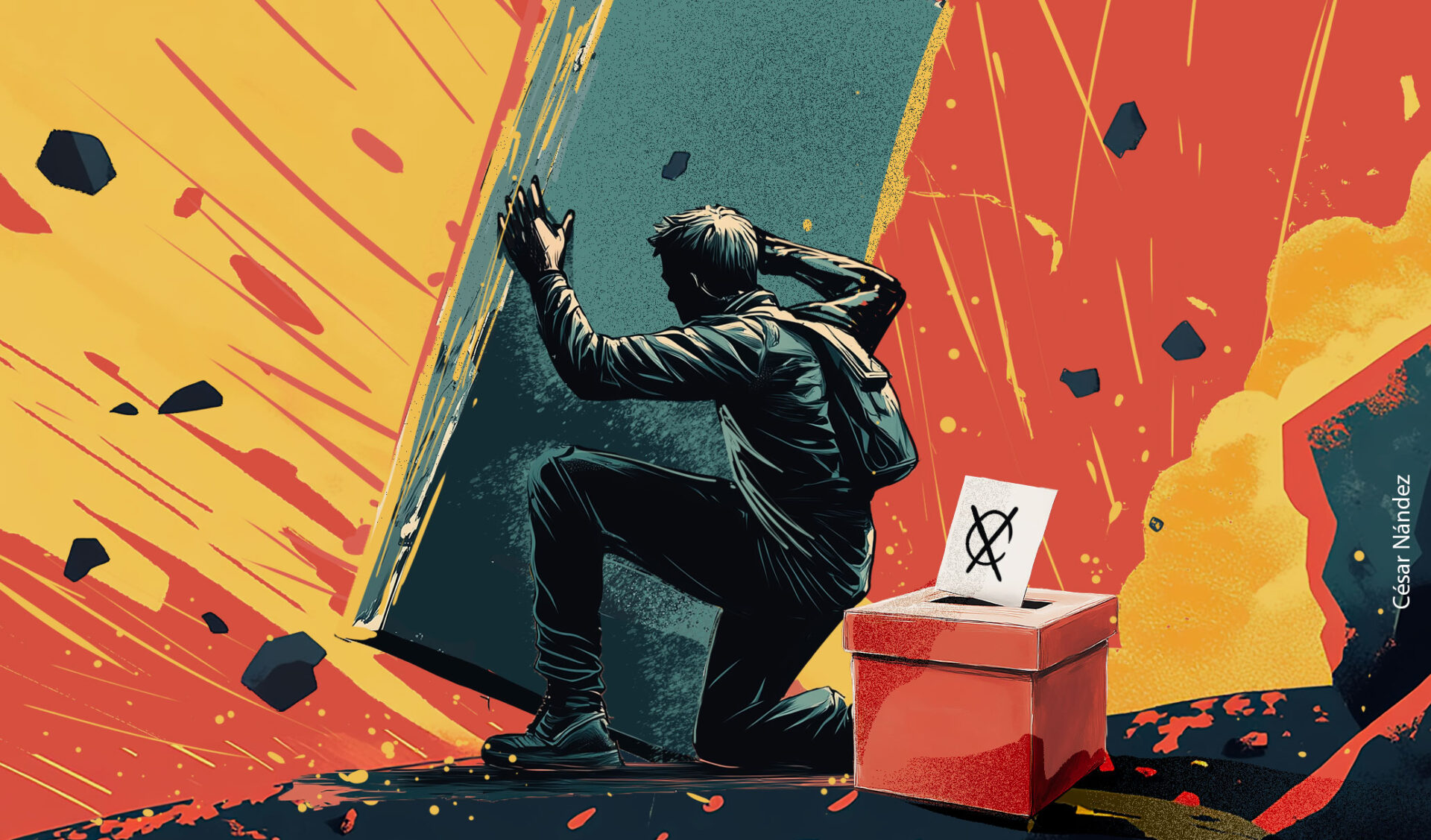Considerable concerns over a democratic deterioration existed even before Donald Trump’s electoral triumph. However, his resounding victory has triggered widespread panic. A flood of commentaries and reflections, spoken and written, paints democracy as teetering on the edge, filling media and social networks.
The real issue isn’t the natural worry about democracy’s health but the old misconceptions feeding it, which persist and mislead. Several of these misconceptions stand out: viewing democracy as a mere tool, ambivalent rhetoric about an always-virtuous civil society, and the unwavering belief in the moral superiority of one’s political ideas, whether left or right.
The first step to strengthening democracy in turbulent times lies in clearly identifying its essence. There’s a widespread notion that democracy is defined by its ability to meet society’s material needs and aspirations. Adam Przeworski describes this as the instrumental view of democracy: it must serve a purpose and holds no intrinsic value. It’s often seen as just another system of governance—perhaps the least bad one. But in framing it this way, democracy’s substantive value is lost.
Fundamentally, democracy is a political system for making collective decisions predictably and peacefully. This is its core value. Naturally, it’s assumed that these collective decisions aim to promote the common good. However, defining that common good is itself subject to democratic deliberation, despite a set of basic parameters that include material well-being. But let’s be clear: democracy is not a social welfare program but a political system for making peaceful collective decisions.
On this foundation, stable instruments—institutions—must be built to sustain this core value over time. In societies of millions, convening in a public square like in ancient Greece isn’t feasible; representation is necessary. Attempting to bypass this reality leads to failed or undemocratic experiments. Moreover, there’s ample evidence of the unreliability of direct electronic voting systems.
The upkeep of this virtuous decision-making system depends on the collective commitment of society’s members. Here’s where the issues begin. Institutional dysfunctions, which cause alienation and delegitimization, are well-known. Yet, the bigger problem lies with the citizenry itself, particularly its political culture.
Understanding democracy’s substantive value requires basic political education. It’s similar to sex, where everyone believes they are innately informed, only for misconceptions to surface later. Across the globe, pockets of people lack any concept of democracy’s meaning and show no interest in learning. Many proudly claim they have no political interest, mistaking democracy’s substantive value for its institutional manifestations. Although educational level and political culture are distinct, there’s often a correlation. It’s no surprise that Trump won overwhelmingly among America’s less educated voters.
Political activism alone doesn’t solve this issue, especially when it’s partisan. In some Latin American countries, public opinion polls reveal that support for democracy fluctuates based on the ruling party’s political affiliation. Democracy’s core value is unclear, overshadowed by partisan political engagement rather than shared rules of the game. Much emphasis is placed on the issue of political polarization, but polarization is just a symptom of the deeper problem: sectarian, factional politics.
Substantive citizenship, whether activist or not, involves a sufficient political culture that recognizes democracy’s intrinsic value. Such citizens understand their rights, institutional boundaries, and regularly engage with their country’s political life. Unfortunately, this group is not the majority in most societies. Studies indicate it represents only a quarter to a third of the population. Yet, it is within this demographic that hope lies for the impartial defense of representative democracy.
Understanding the varying conceptions and behaviors among citizens dispels the common presumption of civil society’s inherent virtue, especially compared to politicians’ flaws. Politicians are often perceived as arriving from another planet rather than emerging from civil society itself. Only after events like Trump’s decisive victory do doubts arise about society’s internal issues. The populist notion that the common people are the wellspring of all virtues is deeply rooted in the left, particularly in Latin America. It confuses those who suffer with those who drive democratic aspirations. Hence, it becomes difficult to reconcile society’s solidarity in a crisis with its lack of support for the democratic system.
Pockets of citizens with low political culture have always existed, particularly since the advent of modernity in the 18th century. However, the communication revolution brought by social media has laid this problem bare. It’s not just about the simplistic, telegraphic nature of online communication; it’s also that vast swathes of poorly politically cultured citizens have emerged, along with their associated crudeness and misinformation. Manipulated information and the spread of fake news thrive among these segments.
Trump’s victory also highlighted confusion between democracy’s mechanisms and its foundations. Beyond the longstanding flaws in the U.S. electoral system, the election of the Republican candidate does not indicate a failure of democracy. Trump won fairly, even by popular vote standards. As mentioned, the problem isn’t Trump but the enormous number of people who voted for him. If there’s an issue, it lies within American civil society, and it seems linked to the poor political culture prevalent among much of the population.
What follows remains uncertain. History is full of instances where autocrats won clean elections only to dismantle democratic rules later. This points to a well-known fact: elections are just one part of a democratic political system. Other elements are defined by the political contract, regularly outlined in the Constitution. This framework safeguards democracy’s core value, which is not tied to the government’s ability to meet material needs. Theoretically, Trump could improve socioeconomic conditions while building an autocracy, as some Latin American leftist governments have demonstrated.
It seems clear that overcoming democracy’s turbulence (talk of its “salvation” is mere rhetorical provocation, one hopes) involves fostering a citizenry with enough political culture to defend democracy’s core value. Organizations like International IDEA stress the need for a coalition across society’s public and private sectors. It’s not solely a task for educational systems, political parties, or governments. It requires a comprehensive democratic deliberation exercise that’s long overdue. However, this demands revisiting outdated views on democracy’s instrumentality. Perhaps, in doing so, we might delay the dreaded end—and still have time to mess up other planets.











